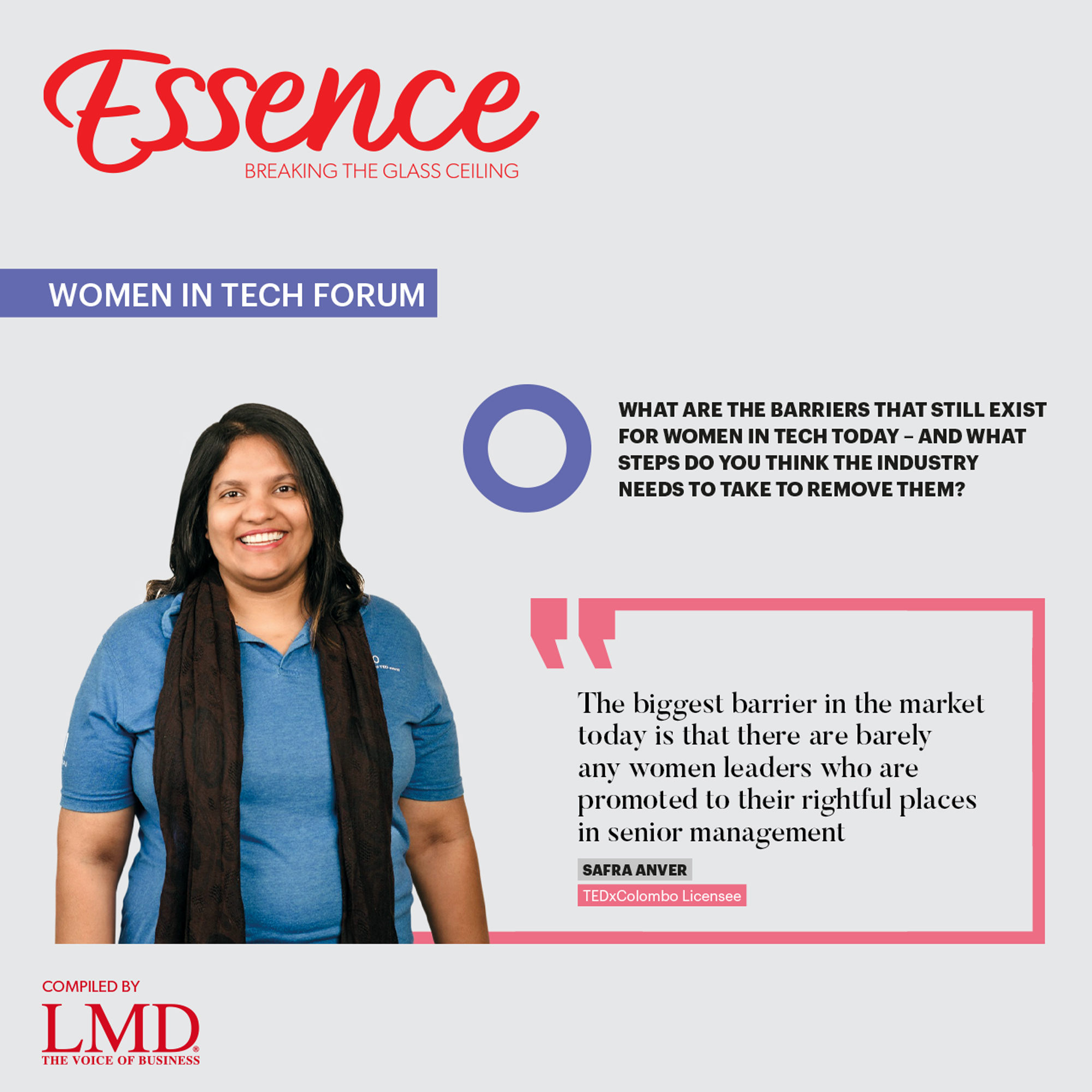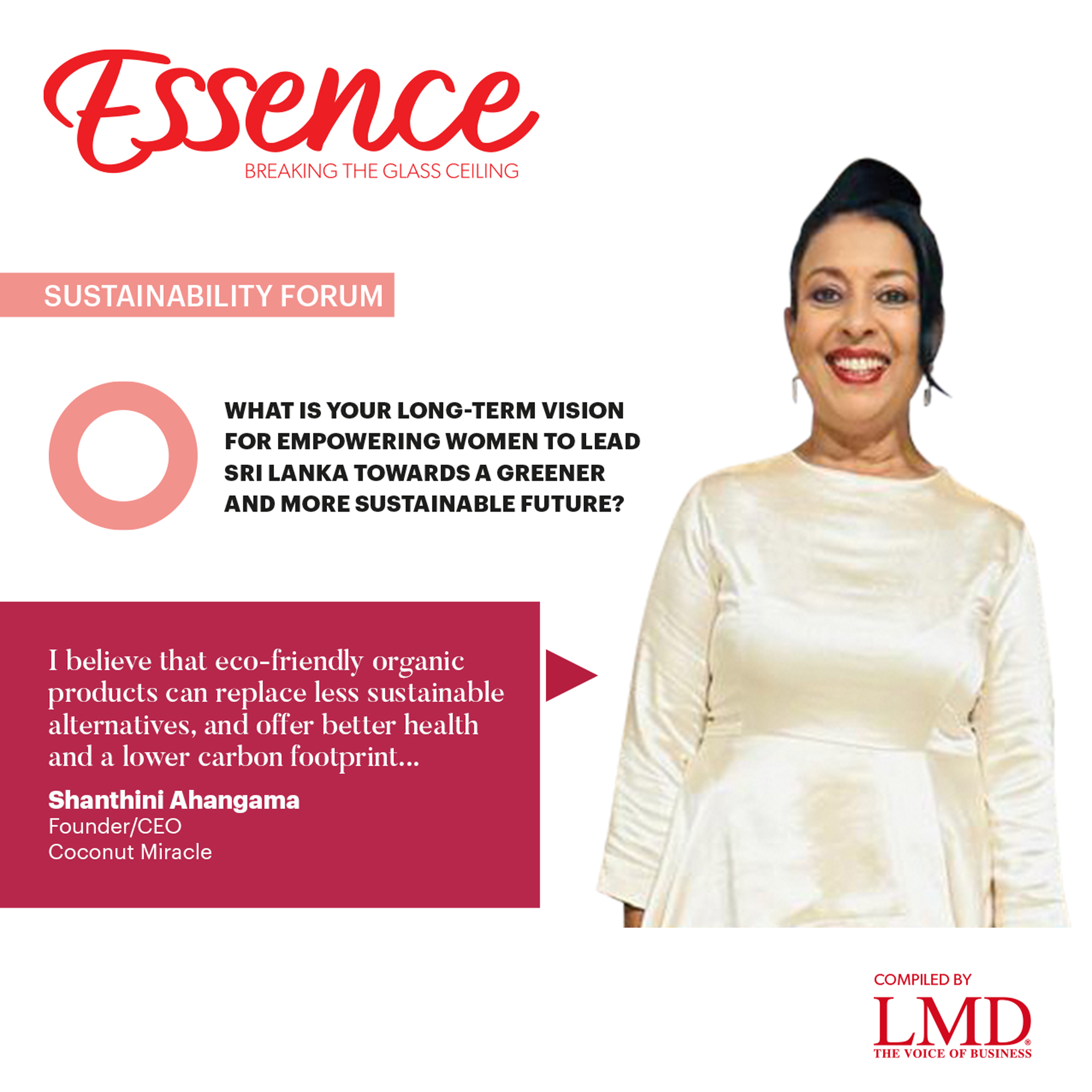DIMO
 Q: What does the human resources (HR) profession offer women?
Q: What does the human resources (HR) profession offer women?
A: The HR profession is about creating value for an organisation; it creates value for people as well. The Diversity and Inclusion (D&I) programmes mainly focus on including women in the workforce and supply chain as part of the sustainability strategy. This creates opportunities for women to be in decision-making positions.
Many progressive organisations focus on D&I initiatives as part of their corporate strategy. Since this is workforce related, it’s the responsibility of HR professionals to implement appropriate policies and practices to attract, develop and retain the best female talent in the organisation.
In the process, HR professionals create an equitable culture for women and nurture them to realise their full potential to become leaders in the organisation.
Ensuring meritocracy, offering equal pay, exposure to training and mentoring, and providing equal opportunities in recruitment and for promotions, are some value additions that can empower women.
Q: What are some of the misconceptions about the profession you’d like to clear?
A: There are many misconceptions. The first is that HR is not strategic – i.e. that it’s about hiring and firing – which is the biggest misconception. In fact, senior HR professionals always focus on contributing to the top and bottom lines through people in an organisation.
Though they don’t calculate and monitor revenue and profits regularly, HR professionals consider measures that can impact the top and bottom lines – such as productivity, employee engagement, staff costs, attrition rates and so forth – in addition to developing co competencies, monitoring employee performance and developing a leadership pipeline.
We cannot buy into misconceptions such as HR not being strategic and business savvy, or that HR professionals are not familiar with numbers, considering what they contribute towards realising business results.
Q: Is HR about people or driving strategy? And how do human resources professionals retain empathy for employees?
A: It’s about devising HR strategy to help businesses. By and large, human resources management (HRM) has evolved from sociological and psychological concepts, and research. Therefore, HR professionals are aware that employees perform well when the environment, and their superiors and peers, are supportive.
In these circumstances, one of the main goals of HR professionals is to create a conducive culture where employees love their work. Empathy is paramount for HR professionals to build a great work culture.
Q: Does HR always have to drive diversity – and if so, why?
A: Driving and owning diversity programmes are two different things. Often, D&I identified through corporate strategy is expected to be delivered by HR.
HR can only devise policies and establish practices but line managers should drive it.
Q: Has the profession become a minefield because of excessive ‘wokeness’?
A: Yes, you can say it’s a minefield!
The HR profession has become more complex than ever because we try to address matters that haven’t been addressed for centuries within a few years – for example, generation gaps, AI, the ‘new normal,’ new competencies needed by organisations and more.
Q: And has the new normal given rise to a hybrid work model that could dissuade women from leaving the workforce due to family commitments? And what were the key challenges faced by HR professionals during the pandemic?
A: While employee health and wellbeing was a huge challenge, staff attached to essential services – such as the medical, engineering and agriculture sectors – were required to work.
Therefore, ensuring employee safety and health while attending to customer demand, in addition to managing family responsibilities, was a real challenge. However, we managed to come up with innovative solutions addressing all concerns while implementing safety measures for employees and minimising the exposure of their families.
With lessons learnt, new ways of working and utilisation of technology, we adopted a hybrid work model especially for pregnant ladies, feeding mothers, staff with vulnerable parents and women in general, while offering part-time work for some.
Dilrukshi Kurukulasuriya
Chief Human Resources Officer





